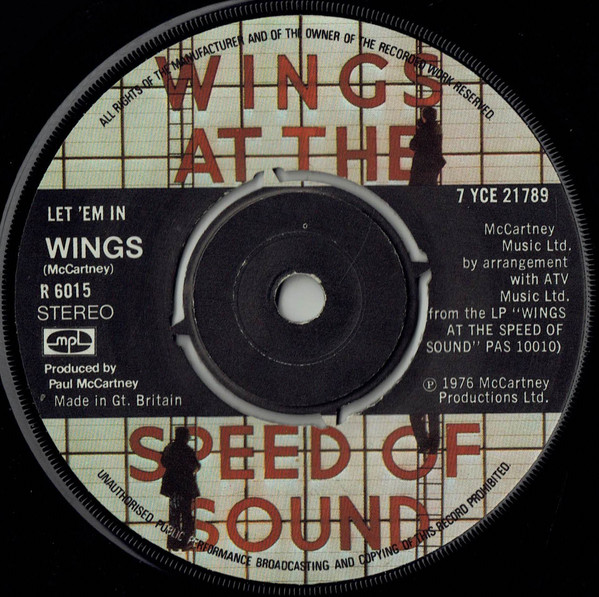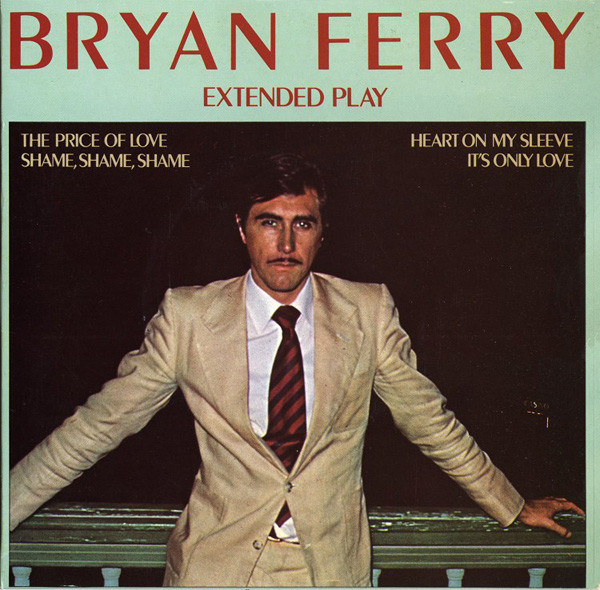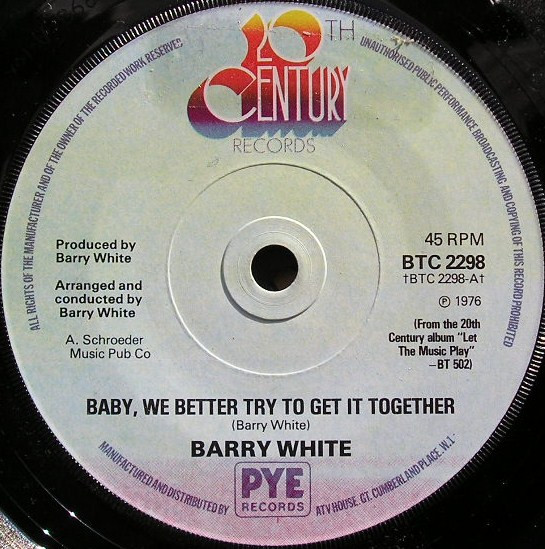
You can guess the fundamental problem that I, and not just I, had. You’ve been out into the world, you’ve seen a portion of the world that is far bigger and expansive than anything you’ve witnessed or experienced at home…and then you have to come back home. Out in New York I was treated like a grown-up, an equal. My father felt as though he was in the company of his peers.
Not once during that month in New York did I feel homesick. I might have felt a bit sick about coming home, though. But what could I do? That’s your lot, your break from life, now away back home with you. In normal circumstances that is understandable; I had already heard horror stories about what Blackpool was like in the winter. But normal circumstances these were not.
Back to Uddingston, juvenilia and the infuriating minutiae of everyday living. Back to being a twelve-year-old, about to start his second year at the Grammar. This is when and where I knew that if I wanted to get anywhere in life, I’d have to do what my mother had done before me – leave the place of my birth and go somewhere else.
I was young; I could still do that. But my father wasn’t, and couldn’t. I became philosophical about things; finish school, get my qualifications then get the hell out and I can have a lot more New York moments to savour in my future. But my father felt trapped, defeated in a life he didn’t really want and for which he had never been remotely ready. That – he – wouldn’t really begin to change until the summer of 1979, when we went on a month’s holiday to Italy. We, that is my mother and I, were meanwhile the regular, available recipients of his outward expressions of frustration. You might understand why I had to get the blazes out of things in the early autumn of 1980. To my father, my mother and I were persistent reminders of the life he couldn’t have, of the voluntary shackles.
So I kept a low profile in August 1976, began to get about and see friends more often. My second year at Uddingston Grammar would prove a little more promising than the first had done, despite my needing to deal with the duality of witnessing David Murray and Oliver Lake blowing in person, and inwardly shuddering at my classmates’ ceaseless fixation with comic books, Doctor Who and football. You can see why I still have problems having to deal with this sort of stuff from alleged grown-ups on social media. I had, and still have, little patience for it.
Hence I got more friendly with my teachers, which was possible because I generally had better teachers than I’d done the year before. My English teacher John Shaw in particular was a marvel. He knew exactly where I was coming from as a writer and encouraged it – who else in my year was using words like “succinctly” in their writing? The predictable downside was that I became known to my classmates as a “sook” – the Scottish expression for a pupil who sucks up to their teachers. Which was fine by me. I could talk with my teachers like I was a fellow adult, and they took me seriously in turn. If that made me a “sook,” so be it.
John Shaw – he was a bit of an expired hippie whose favourite band, in 1976-7, was Amon Duul II. Oh, how we youthful morons laughed. Well, everybody did, frankly; nobody took German rock, experimental or otherwise, seriously because they all had shaggy, lanky hair, uncomfortable-looking flares or were they discarded circus tents, and unspeakable beards. Under his encouragement and guidance I wrote an astounding avant-garde multimedia science fiction epic entitled Leap Into Version Five (which still exists; I kept the notebooks in which I wrote it – don’t get too excited, though, because it’s now unreadable).
And the summer was still extraordinarily hot, although it was almost impossible to cope with the transition from Lower Manhattan back to Bothwell Castle. The music? It was what it was, and this is what I had to say about it at the time, while mostly waiting to return to what I did hope would be a better and more interesting year.
Notes on Text
At the time I thought “The Killing Of Georgie” might just beat “Dancing Queen” to number one but of course it proved to be the other way around. In retrospect I’m not sure the Britain of 1976 was quite ready to have an openly pro-gay song at the top of its chart.
7 August
WINGS: Let ‘Em In/Beware My Love (MPL R 6015)

Amiable Gilbert O’Sullivan-ish midtempo piano pounder which suddenly transforms into a military march with piccolos and kazoos. Probably as big a hit as “Silly Love Songs” because one feels at the moment that McCartney is the only solo Beatle who’s even trying things out. He still understands what pop music’s about, even if his approach sometimes comes across as slightly embarrassing.
STEVE HARLEY & COCKNEY REBEL: Here Comes The Sun/Lay Me Down (EMI 2505)

Speaking of the Beatles, Harley is seeking another hit with an uptempo, prog rock-style cover of the Abbey Road tune, doubtless released to capitalise on this scorched summer. Rather knowing, but it should get him back in the top ten.
BILLIE JO SPEARS: What I’ve Got In Mind/Everytime Two Fools Collide (United Artists UP 36118)

Back Ms Spears comes for the second consecutive summer with more country and western double entendres. The trouble with this music is that, even though it’s supposed to be about sex, it sounds really unsexy. Perhaps that’s its point.
BEE GEES: You Should Be Dancing/Subway (RSO 2090 195)

Those concerned that “Jive Talkin’” might have been a one-off comeback need worry no longer – this is a really powerful dance record with KC horns, heavy rock guitars, an Escher staircase of chord changes and a falsetto Barry Gibb seemingly shrieking for his life. Who’d have thought the “Massachusetts” guys could have come up with this? My father also likes it, though argues that the chorus should really be: “What’cha doin’ in the disco at night?/You should be SLEEPIN’, YEAH!”
14 August
THE STYLISTICS: Sixteen Bars/I Will Love You Always (H & L Records 6105 059)

A once-great vocal group now sinking ever further into cabaret hell. For Humperdinck fans only.
LOU RAWLS: You’ll Never Find Another Love Like Mine/Let’s Fall In Love All Over Again (Philadelphia International PIR 4372)

A deserved huge hit to be for the veteran singer, who sounds so rejuvenated by Gamble and Huff’s boat-rocking hustler – their strongest song in some time - he could be a stand-in for the Six Million Dollar Man.
THE CHI-LITES: You Don’t Have To Go (Vocal)/You Don’t Have To Go (Instrumental) (Brunswick BR 34)

Still chasing the “Rock Your Baby” bandwagon two years on, though dotted by a curious Dixieland woodwind arrangement, this is faster than usual for the Chi-Lites but doesn’t really amount to anything at the end. And in 1976 we surely should have moved beyond putting instrumental backing tracks on the B-sides of singles.
BRYAN FERRY: Extended Play (E.P.) (Island IEP 1)
Track listing: The Price Of Love/Shame, Shame, Shame/Heart On My Sleeve/It’s Only Love

Speedily on the back of the success of both “Let’s Stay Together” and Demis Roussos – and looking rather like Ron Mael on the cover – the Roxy man jumps on the E.P. bandwagon with yet more cover versions. The Everly Brothers song is the lead track with trumpet intro leading into a raucous Roxy-type romp. “Shame, Shame, Shame” is the old Jimmy Reed blues belter, not Shirley and Company, the Gallagher and Lyle cover is interesting, and the Beatles one sounds thrown away like a disinterested cigarette carton.
21 August
BARRY WHITE: Baby, We Better Try To Get It Together/If You Know, Won’t You Tell Me (20th Century BTC 2298)

Now beginning to sound somewhat dated, is Barry; entirely formulaic and unlikely to excite many.
JAMES AND BOBBY PURIFY: Morning Glory/Turning Back The Pages (Mercury 6167 380)

Sprightly bustling soul-pop and double-speed follow-up to “Puppet.” Very decent.
STARLAND VOCAL BAND: Afternoon Delight/Starland (RCA Victor RCA 2716)

Belated UK Top 30 entry for America’s bicentennial number one. Twee close harmony crooning, and we know exactly what they’re singing about, but why does it sound so bereft of…sex? They sing the song as though they prefer the idea of sex to its practice. Can’t see it displacing Elton and Kiki here.
JESSE GREEN: Nice & Slow (Instrumental)/Nice & Slow (Vocal) (EMI 2492)

That rarest of things, British disco with credibility, and in an interesting reversal of the norm, Mel Cheren’s “Disco Mix” of the instrumental seems to have found more favour with dancers than Green’s (actually not bad) vocal original.
ABBA: Dancing Queen/That’s Me (Epic EPC 4499)

Having woken up from “Fernando,” Abba now seem to be going for the KC & the Sunshine Band market with the “That’s The Way (I Like It)” topline and “Rock Your Baby” rhythm track seemingly given a Demis Roussos-style arrangement (possibly with a touch of Silver Convention), all cascading and processed strings and keyboards. The lyrics still sound written by someone for whom English is perhaps a third language – there really isn’t any “rock music,” little bit or otherwise, going on here - but the group seems unstoppable at the moment and this should do their usual commercial business.
ROD STEWART: The Killing Of Georgie Parts 1 & 2/Fool For You (Riva RIVA 4)

This time, however, Abba have competition – a six-minute and sixteen-second long epic (longer than “Bohemian Rhapsody” or “I’m Not In Love”) that probably constitutes the first hit single to feature an explicitly gay protagonist. The first part sounds musically like a cleaned-up variation on “Walk On The Wild Side” and the song’s lyrics are occasionally clunky, if heartfelt (“There ensued a fearful fight” sounds more like William McGonagall than anything else). The second part is slow and elegiac. Having just come back from New York, I can attest with a small degree of authority that taking a short cut home late at night is not advisable – but this shouldn’t detach from what is clearly an important and courageous record and a likely smash hit. Stewart’s best (and certainly longest) single since “Maggie May.”
28 August
JUDGE DREAD: Y Viva Suspenders/Confessions Of A Bouncer (Cactus CT 99)

Embarrassing.
CLIFF RICHARD: I Can’t Ask For Anymore Than You/Junior Cowboy (EMI 2499)

The third single from his very strong I’m Nearly Famous album, showing off Cliff’s rarely-exposed falsetto voice to good effect.
TWIGGY: Here I Go Again/In Love Together (Mercury 6007 100)

Trying for credibility, God bless her. Specifically she sounds like she’s trying to be Marianne Faithfull and there’s nothing wrong with Country Joe McDonald’s song, but the basic problem is that she can’t actually sing.
GHEORGHE ZAMFIR: The Light Of Experience ('Doina De Jale')/Brîul Oltenesc (Epic EPC 4310)

One afternoon on Blackpool’s North Shore, in the sunshine, earlier this year, was when we heard this being played on the transistor radio. We were dumbstruck and spellbound. What was this? It sounded like a faraway cry, the most distant of prayers. It was quite long but very patient; the principal musician seemed in no hurry, wanted to express everything he could through this strange instrument called the Romanian panpipe. No tempo, not much at all other than a constant and slowly-evolving drone behind the panpipe player. It was as if the world had stopped, paused, for a few minutes. There were no words but the player seemed to be saying and expressing everything.
This elegant nothingness. This kaleidoscope of concentrated emotion. The presenter said it was the theme to The Light Of Experience, a late-night Sunday religious programme on BBC1 that we didn’t watch because we aren’t religious, or at least my father and I aren’t – at the moment. But we all found this compelling listening.
Several months later, this performance has suddenly materialised in the pop charts and occasionally I can appreciate why they exist.

Yeah, "The Killing of Georgie" was a brave move, along with Rod's traditional (at that time) performance video of only himself at the mic, one spotlight, being very camp. Unfortunately, once again the gay guy has to die before the songs end, which seemed to be the rule back then (see also Rubettes "Under one roof")
ReplyDelete